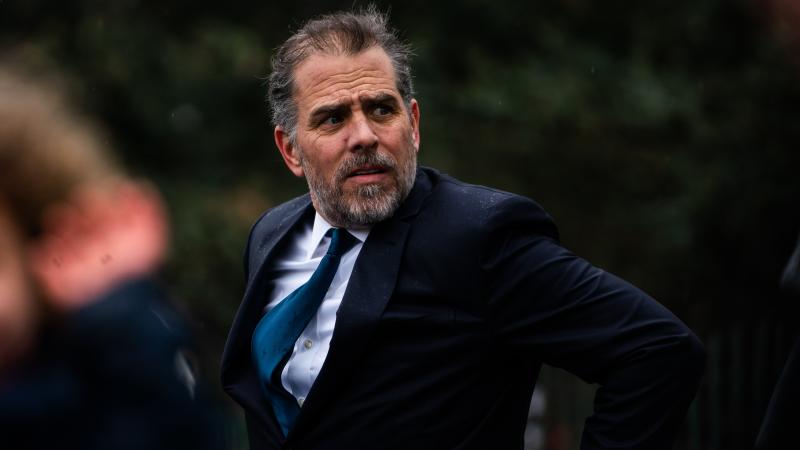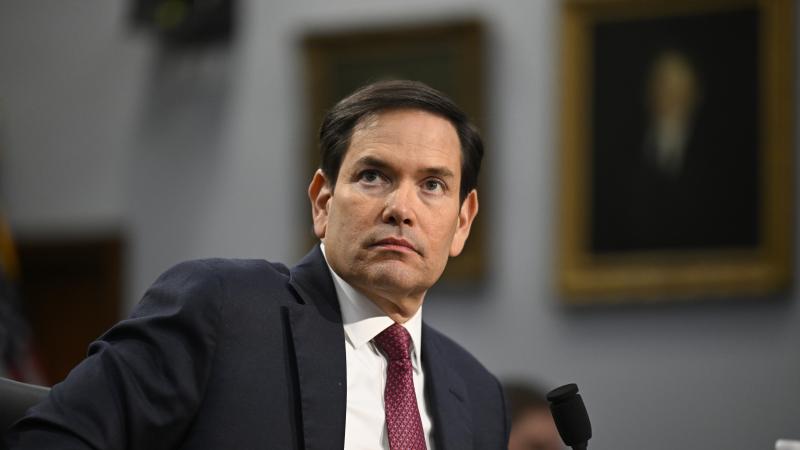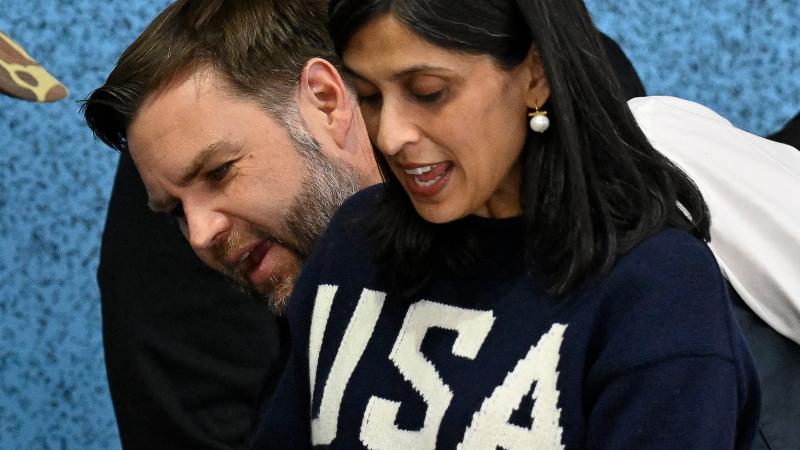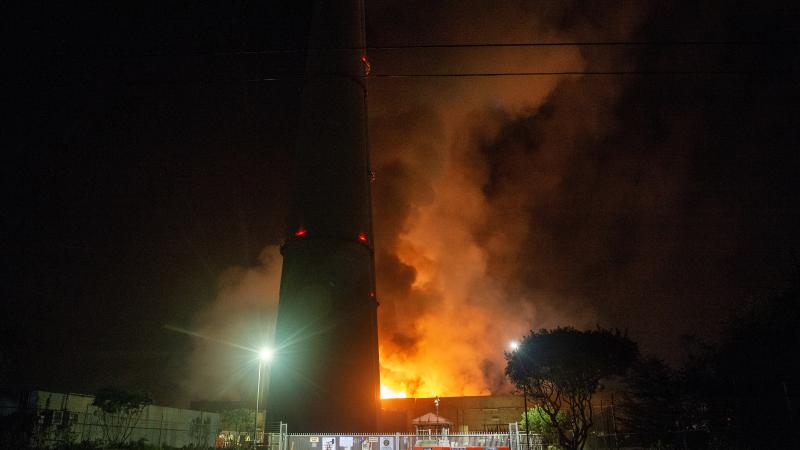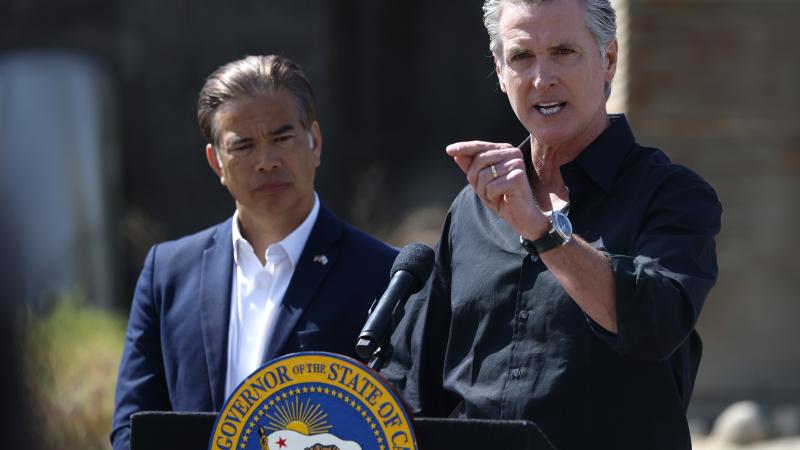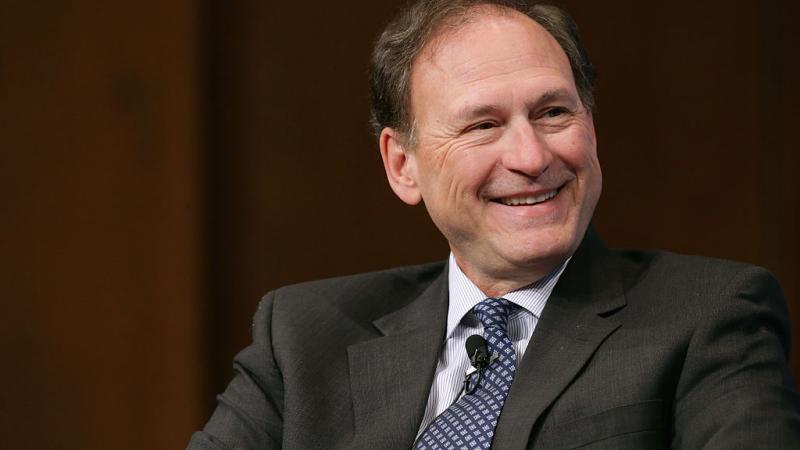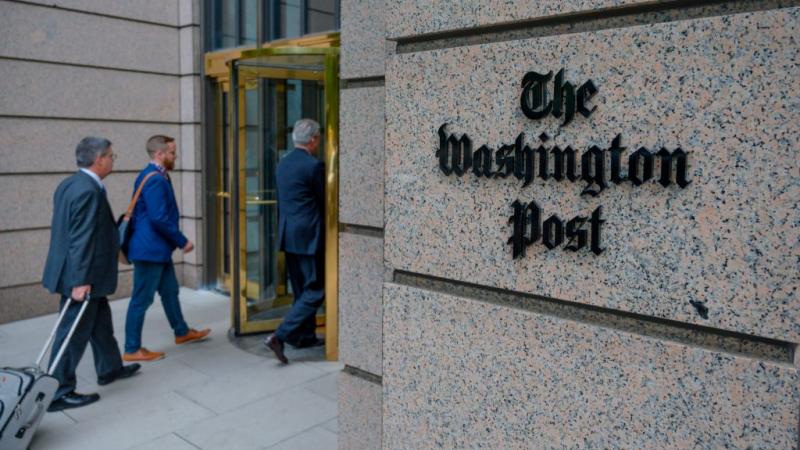Before weaponizing Russia against Trump, Biden and other Democrats reaped lucrative benefits
From the Clinton Foundation to Hunter Biden’s business dealings, prominent Democratic families appeared to benefit from Obama’s reset of relations with Russians, including oligarchs, investment banks and energy giants.
While Democrats weaponized invented Russia collusion claims in an attempt to sink President Donald Trump’s first term, in retrospect the party’s leaders have often gone soft on Russia when it wanted to reap financial or political benefits for themselves or allies.
From the Obama-era "Russian Reset" and Secretary of State Hillary Clinton’s Skolkovo investment project to Hunter Biden’s business in Moscow and President Joe Biden’s waiving of sanctions against a Russian pipeline, key Democratic figures reaped political and financial benefits from going soft on Moscow.
Newly declassified documents produced by the FBI and the Department of Justice’s Crossfire Hurricane investigation into allegations that then-candidate Trump or members of his campaign coordinated with Russia to influence the 2016 election wholly discredit the probe. For example, one key informant’s account was deemed unreliable, an official disputed a key media narrative, and key source Christopher Steele leaked his infamous dossier to the media.
Last week, FBI Director Kash Patel transmitted to Congress hundreds of pages of declassified documents from that investigation, following a declassification executive order from President Donald Trump last month. Just the News made all 700 pages from the declassified binder available to the public.
Despite several years' worth of focus on the allegations from the Democrats in Congress, an investigation by special counsel Robert Mueller “did not establish” any criminal Trump-Russia collusion. Special counsel John Durham, appointed to review the probe, ultimately concluded that “neither U.S. law enforcement nor the Intelligence Community appears to have possessed any actual evidence of collusion in their holdings at the commencement of the Crossfire Hurricane investigation.”
The "Russian Reset"
After Russia's two invasions of Ukraine, first in 2014 and again in 2022, senior Democratic leaders roundly called out Russia and its president, Vladimir Putin’s aggressive behavior, primarily targeted at the country’s smaller neighbor, Ukraine.
But in the years before Moscow’s invasion, Democrats enriched themselves politically and personally from Russian oligarchs and businesses in the region while empowering Putin with energy and technology deals that still haunt America today.
President Barack Obama, after taking office in early 2009, set in motion the merging of U.S. business interests with the Russian economy through the famous “reset” in relations between the two powers. Obama’s reset began in 2009 as an effort to cool tensions that had ballooned after Russia’s invasion of its small neighbor Georgia in 2008.
The reset set the stage for several prominent Democrats and their benefactors to profit from the burgeoning business opportunities in Russia being facilitated by the Obama administration.
Hillary Clinton, Skolkovo, and a half-million dollar speaking fee
In one case, the policy of Obama’s Secretary of State Hillary Clinton to support and develop Russia’s “Silicon Valley,” known as Skolkovo, may have undermined U.S. national security while the family’s Clinton Foundation pocketed donations from Russian donors. After Russia’s first invasion of Ukraine, she would later make an about-face, instigating a narrative wherein Russia allegedly interfered and deprived her of victory in the 2016 election in which she was a candidate. She called her opponent, Donald Trump, a “Trojan Horse for Putin.”
After Clinton was appointed to represent the United States at the newly formed U.S.-Russia Bilateral Presidential Commission, she helped direct investments from U.S. partners to the venture, which had already received $5 million in funding from Moscow, investigative reporter Peter Schweizer found in his 2015 book "Clinton Cash."
The Skolkovo project received backing and support from Clinton Foundation donors, like Google, Intel and Cisco. Additionally, donations from Russian businessmen tied to the Skolkovo project flowed to the Clinton Foundation. Andrey Vavilov, Chairman of SuperOx, which is part of Skolkovo’s nuclear research group, donated between $10,000 and $25,000 to the foundation, Schweizer reported. The Skolkovo Foundation head and billionaire Viktor Vekselberg also donated to the charity through his company, Renova Group.
Clinton’s spouse, former president Bill Clinton, also reaped rewards from the Russian reset, collecting a $500,000 speaking fee from a Russian investment bank, Renaissance Capital. The speech came at the same time that Secretary Clinton was opposing sanctions measures on Russian officials that later became the Magnitsky Act, Fox News reported.
The Bidens and Moscow
Obama’s vice president, Joe Biden, gave an early voice to the administration’s new policy towards Russia weeks after their term in office began. “The last few years have seen a dangerous drift in relations between Russia and the members of our Alliance,” Biden said at the Munich Security Conference on Feb. 7, 2009. “It is time—to paraphrase President Obama—it's time to press the reset button and to revisit the many areas where we can and should be working together with Russia.”
Hunter Biden, the vice president’s son, and his business partners took full advantage of the new thaw, waging a concerted campaign to squeeze oligarchs in Vladimir Putin's country for investments, an effort that ultimately paved the way for the first son to score a big payday from Burisma Holdings in neighboring Ukraine, Just the News previously reported.
Hunter Biden and his partners' pursuit of Russian riches began as early as 2010 when the “reset” was entering full swing with payments from a Moscow-based machinery firm and its "patriarch," and they intensified a few years later at a time when Joe Biden's son was actually still serving as a U.S. Navy officer, according to bank records, emails and congressional testimony.
Along the way, Hunter Biden and his partners like Devon Archer discussed plans to open up a Moscow office for their Rosemont Seneca Partners firm, create a U.S.-Russia business coalition and pursue a real estate venture with one oligarch that could have topped out at $1 billion, the evidence showed.
Ahead of the Russian seizure of Crimea and covert invasion of the Donbas region of Ukraine in 2014, Hunter Biden and his company were on the verge of a significant expansion in Russia after years of courtship. Rosemont was working on developing a real estate fund targeting the potentially lucrative Russian market as relations thawed.
To that end, the younger Biden and his partner, Devon Archer, courted Putin-friendly oligarch Ara Abramyan to back a new entity called the Rosemont Real Estate Acquisition Fund One. The pair also planned to form an action plan for a “U.S./Russia Business Council Concept” and investment in something called the “Cantor Russia Casino project.” The plans also listed a “Rosemont Moscow office,” signaling Rosemont’s full commitment to the Russian market, the emails previously reported by Just the News show.
The plans for a Rosemont real estate empire, however, ultimately fell through after Russia invaded Ukraine in the spring of 2014. According to Archer’s testimony to Congress during the impeachment inquiry into Joe Biden, he and Biden scrambled to recover their business and looked for investors based outside Russia, which eventually led to Hunter Biden’s now infamous work for the Ukrainian energy company Burisma Holdings.
Biden calls Russia "biggest threat" but waives sanctions on Russian gas
Within months of taking office in January 2021, now-President Joe Biden was presented with a thorn in the U.S. relationship with a key NATO ally, Germany: the ongoing dispute over the Russian-built natural gas pipeline NordStream2, which was set to deliver energy supplies to Germany until U.S. sanctions interrupted the project.
Yet, despite publicly touting his criticism of Russia and Putin, as well as warnings that the country was America’s “biggest threat,” at the same time, President Biden waived all sanctions on the NordStream2 gas pipeline, sacrificing a policy of preventing Russia from exploiting its gas supplies in order to improve relations with NordStream customers, who were our European allies.
Coincidentally, one of the main U.S. lobbyists supporting the NordStream project, Richard Burt of McLarty Associates and a former U.S. Ambassador to Germany, donated a total of $15,000 to Biden's presidential campaign in 2020, Just the News previously reported.
The sacrifice of sanctions to improve relations with Germany was short-lived, however, because little more than a year later, Russia would launch a full-scale invasion of Ukraine. The pipeline was ultimately damaged in an apparent sabotage attack later that year.
The Facts Inside Our Reporter's Notebook
Links
- account was deemed unreliable
- disputed a key media narrative
- leaked his infamous dossier
- transmitted to Congress
- all 700 pages from the declassified binder
- âdid not establishâ
- Trump-Russia collusion.
- concluded
- enriched themselves politically and personally
- still haunt America today
- famous “reset”
- Trojan Horse for Putin
- in his 2015 book
- Intel
- Cisco
- donated between $10,000 and $25,000
- donated to the charity
- a $500,000 speaking fee
- opposing sanctions measures on Russian officials
- said at the Munich Security Conference
- waging a concerted campaign
- to back a new entity
- emails previously reported
- scrambled to recover their business
- biggest threat
- waived all sanctions on the Nord Stream 2 gas pipeline
- donated a total $15,000 to Biden's presidential campaign
